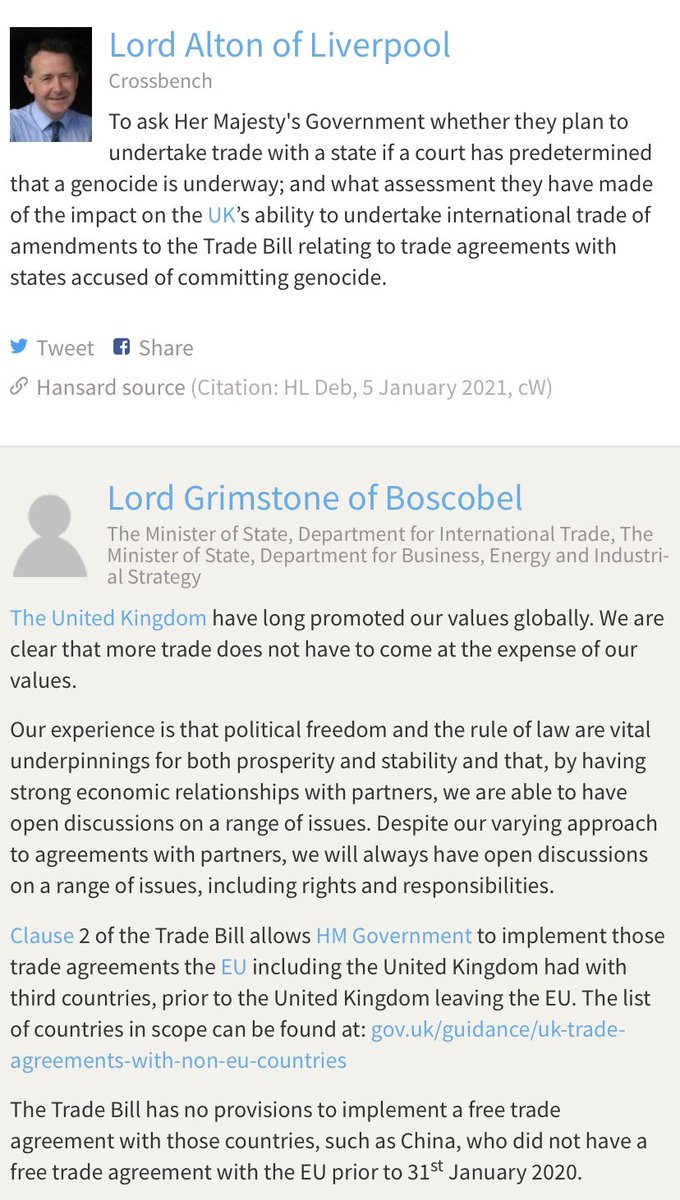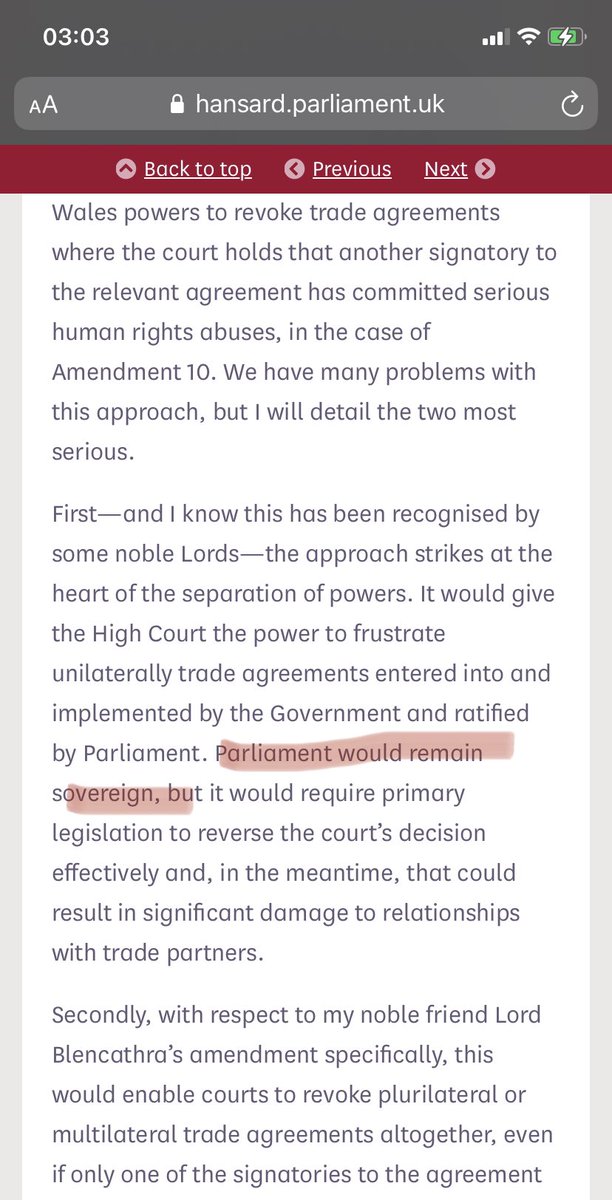1. Only international courts can determine genocide, right?
Wrong. Here’s Foreign Secretary @DominicRaab own letter to @TomTugendhat @CommonsForeign 8th Dec 2020
Wrong. Here’s Foreign Secretary @DominicRaab own letter to @TomTugendhat @CommonsForeign 8th Dec 2020
2. No “responsible government” would let it get that bad before halting trade negotiations (see below).
Agree 100%. But right now there is nothing to prevent deals being offered to genocidal states. The amendment establishes a minimum human rights standard - as opposed to none.
Agree 100%. But right now there is nothing to prevent deals being offered to genocidal states. The amendment establishes a minimum human rights standard - as opposed to none.
3. This amendment allows for judicial activism.
This is a bogus argument and an insult to the judiciary. Judges cannot manufacture evidence of genocidal intent or atrocity crimes.
This is a bogus argument and an insult to the judiciary. Judges cannot manufacture evidence of genocidal intent or atrocity crimes.
4. This will damage the UK’s ability to trade post Brexit.
That isn’t the view of the Department for International Trade.
That isn’t the view of the Department for International Trade.
5. This isn’t the right bill, isn’t the right time.
(In 12 years of amending bills I have never NOT heard this argument). To the contrary this is what @trussliz the Secretary of State for Trade had to say last week:
(In 12 years of amending bills I have never NOT heard this argument). To the contrary this is what @trussliz the Secretary of State for Trade had to say last week:
6. This gives too much power to the courts.
No. The court is the competent authority and Parliamentary sovereignty is undiminished by this amendment. Minister Grimstone said as much in the Lords debate on the amendment on 7th Dec 2020
No. The court is the competent authority and Parliamentary sovereignty is undiminished by this amendment. Minister Grimstone said as much in the Lords debate on the amendment on 7th Dec 2020
7. This undermines the UN.
On the contrary it *helps* the UN by providing the U.K. with a solid legal basis to use the word “genocide” and therefore push for a “full” UN determination. At the moment the U.K. simply refuses to use the word.
On the contrary it *helps* the UN by providing the U.K. with a solid legal basis to use the word “genocide” and therefore push for a “full” UN determination. At the moment the U.K. simply refuses to use the word.

8. This overturns long standing policy.
Sort of. The domestic court aspect is novel, but compatible with current policy which requires court decision.
I wrote about the fruits of the current policy back in 2016. A litany of failures and regret. https://www.spectator.co.uk/article/a-genocide-is-underway-in-iraq-and-syria-why-won-t-the-government-recognise-this-
Sort of. The domestic court aspect is novel, but compatible with current policy which requires court decision.
I wrote about the fruits of the current policy back in 2016. A litany of failures and regret. https://www.spectator.co.uk/article/a-genocide-is-underway-in-iraq-and-syria-why-won-t-the-government-recognise-this-
9. This will open up a Pandora’s box about past genocides.
 Read the amendment. It specifically excludes past genocides.
Read the amendment. It specifically excludes past genocides.
 Read the amendment. It specifically excludes past genocides.
Read the amendment. It specifically excludes past genocides.
10. What about state immunity?
The amendment allows for a “preliminary determination”, and does not provide for a criminal process. It cannot punish.
The amendment allows for a “preliminary determination”, and does not provide for a criminal process. It cannot punish.
11. So it’s just virtue signalling?
No. U.K. policy is that we will not use the word genocide - and therefore will not engage with our obligations under the Genocide Convention - without a solid legal basis. The amendment would provide such a basis in the context of trade. ENDS
No. U.K. policy is that we will not use the word genocide - and therefore will not engage with our obligations under the Genocide Convention - without a solid legal basis. The amendment would provide such a basis in the context of trade. ENDS

 Read on Twitter
Read on Twitter







